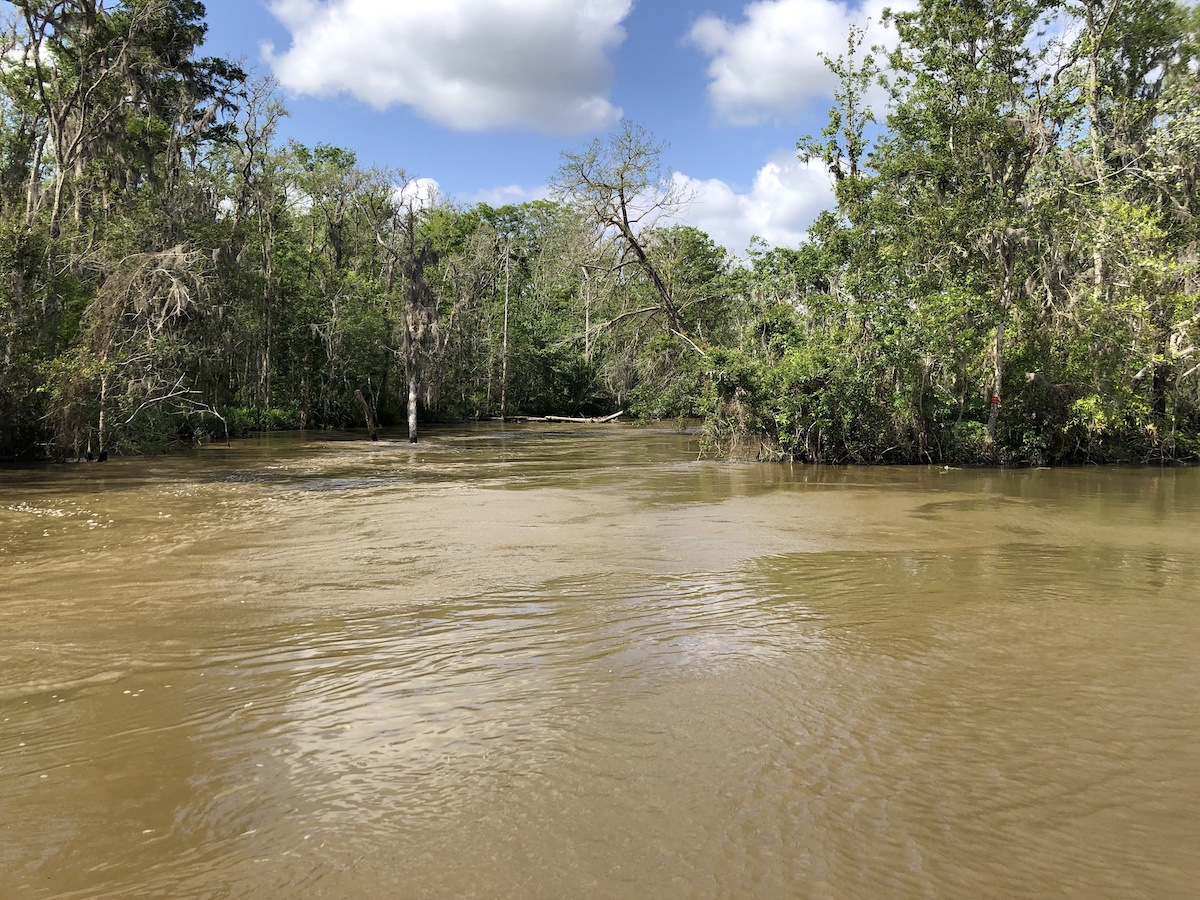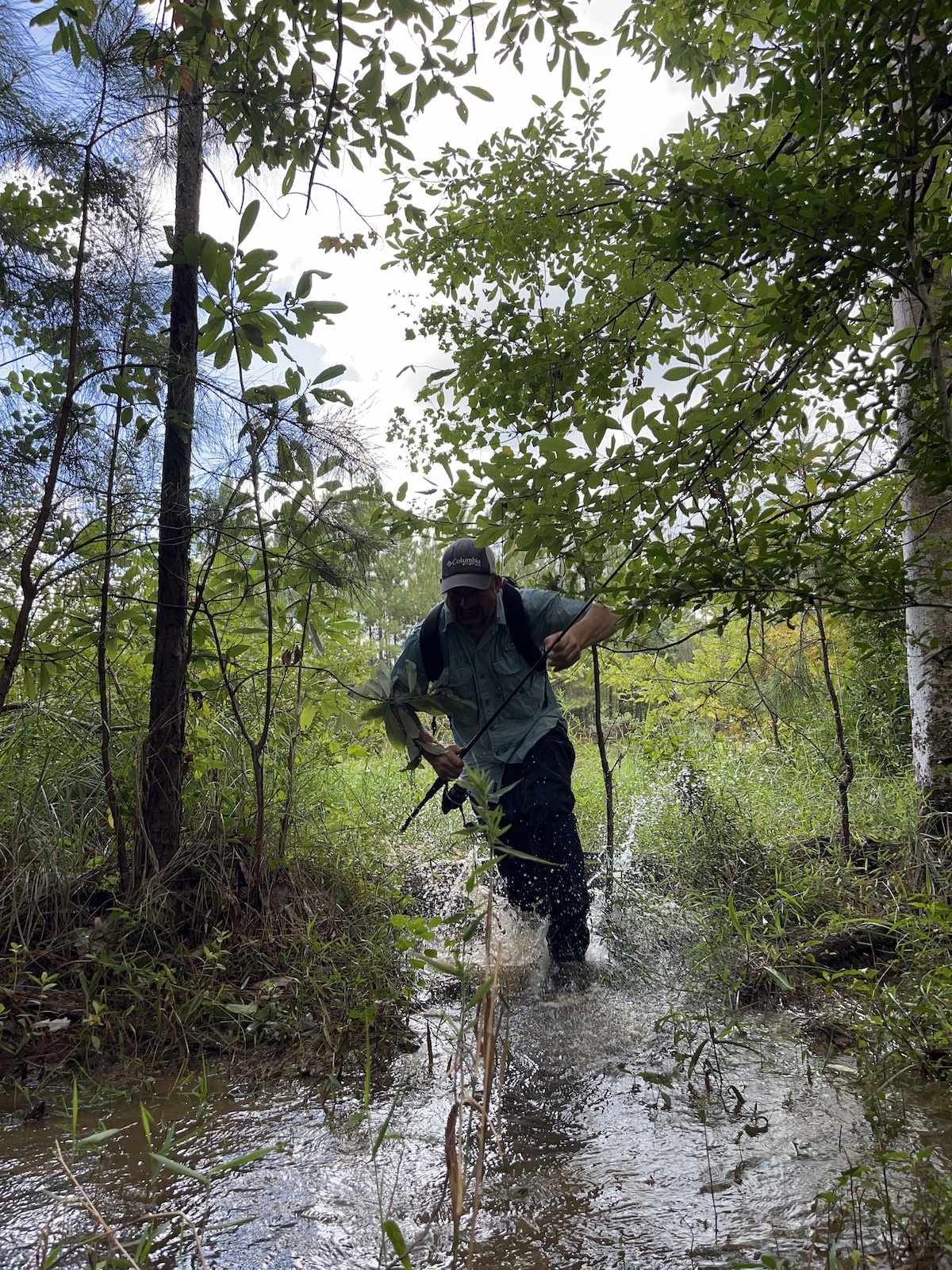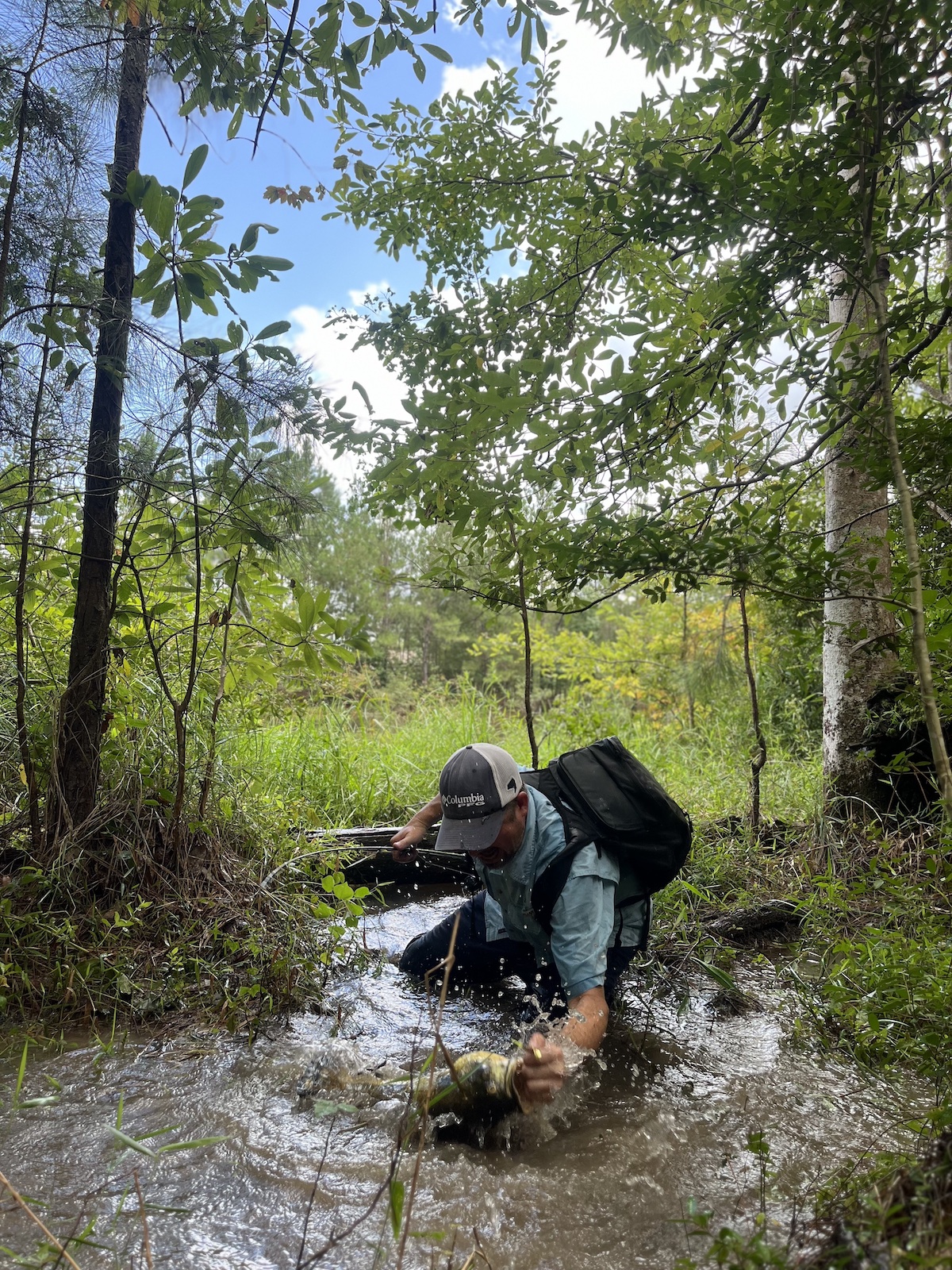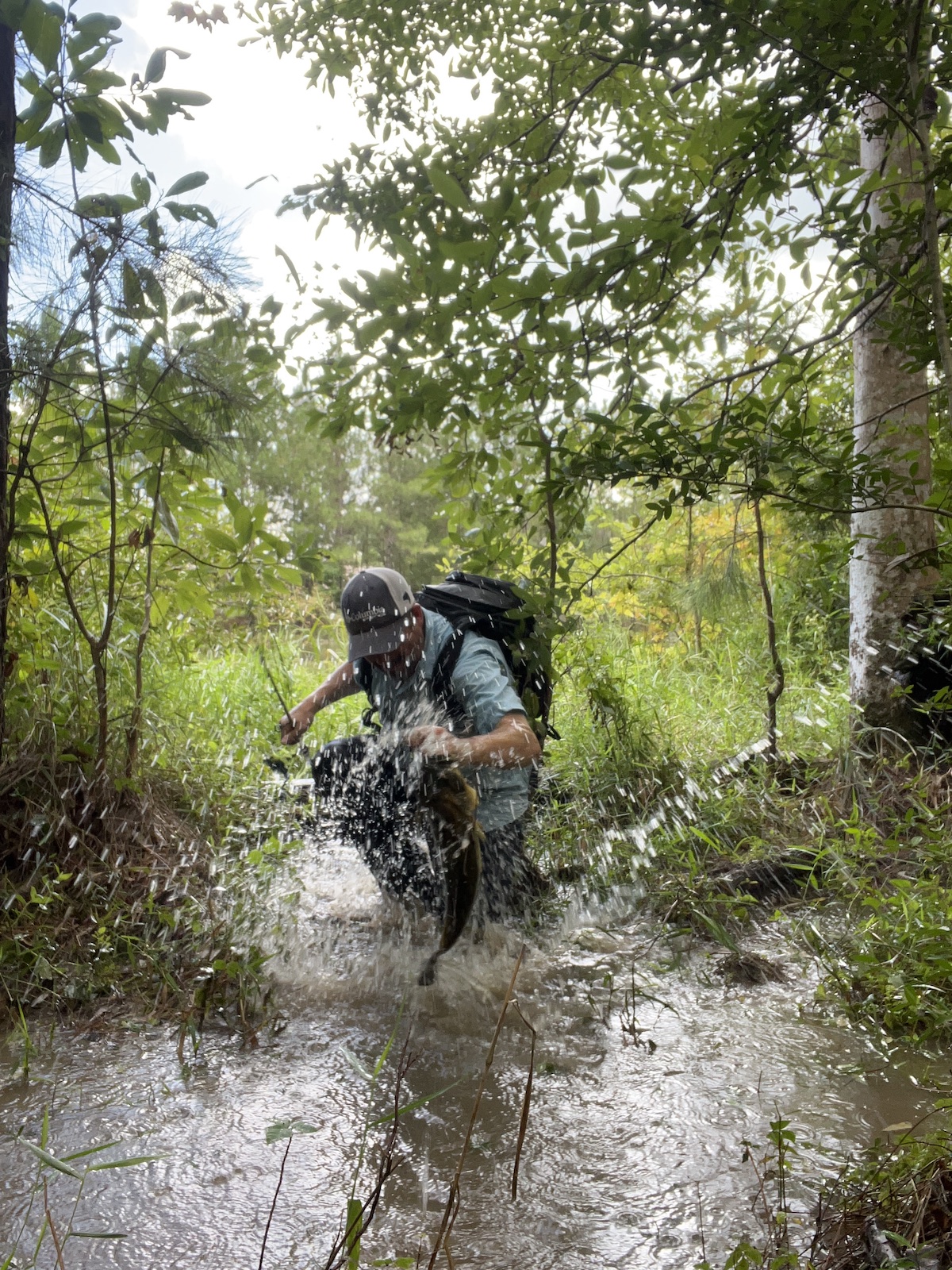Hunting for Swamp Donkeys in the Honey Island Swamp
Keith Lusher 08.20.24

It’s a standard way of thinking for most bass anglers: big water means big bass. But here in Southeast Louisiana, finding deep water can be challenging. Take, for instance, the Honey Island Swamp. The swamp spans over 20 miles, and although it’s large, the average depth is only about 5 feet. For this reason, fishing inside the swamp isn’t a good idea if you’re looking to catch big bass.
So when I made a trip to try and catch some late-season crawfish, I hesitated to bring along my fishing pole. At the last minute, I decided to bring it, and I’m sure glad I did.

My day started early because I wanted to beat the August heat, which has been topping out at 99 degrees the entire week. Fortunately, there is easy access to the swamp, with numerous trails that stretch from Interstate 10 into the swamp. As I walked back to the area where I usually set my nets, I noticed that the river was very high, causing the swamp to be deeper than normal. The water was moving as well, making it unsuitable for crawfishing. Sure, I could have set a few nets out, but I didn’t think it would be worth the effort to only catch a handful of crawfish. I have to admit that I was a bit disappointed; however, I remembered that I had brought along my Shimano Intenza spinning rod paired with my Miravel spinning reel. I walked back to my truck, picked up the crawfish nets, and exchanged them for my fishing setup.

As I walked through the swamp, I made casts in 2-3 feet of water using a homemade rig that has always worked for me—a purple worm with a gold elbow spinning blade snapped on. It’s lightweight, weedless, and works well in murky conditions.
As I waded in the shallows, I made casts to different structures that I thought would hold fish. I was able to pick up two small bass that weighed about a pound each. These were typical for swamp bass, as the shallow water tends to hold smaller fish. I then remembered a deep trenasse (a small ditch through the marsh or swamp) that crawfishermen use to access the swamp from the main river. When the East Pearl River is low and the water drains from the swamp, this small creek is the only thing that holds water. It runs about 4 feet deep when the river is low, so I knew it would be about 7 feet deep on this day. This was my chance to target deeper water and hopefully entice one of those infamous “swamp donkeys” to bite. “Swamp donkey” is a term that tournament bass anglers use for fish pulled out of the swamp. They usually range from 4 to 7 pounds and can be awfully fun to catch, given all the structure that benefits the fish during the fight.
As I approached the trenasse, I spotted a wake being pushed from the shallow water into the deep water of the trenasse. It seemed that I had spooked a bass that was in the shallows, and it swam into the safer, deep water. I wanted that fish! I positioned myself along the trenasse, which is marked by ribbons tied to cypress trees, and started casting. My first two casts landed in the shallow water on the side of the channel; however, my third cast landed in the deep trenasse, and it only took two turns of the reel handle before my line came to a stop and moved to the right.

I reared back, set the hook, and braced myself for a fight as the bass made a jump upon hookset. Fortunately, there were no trees or brush in my way, and I was able to reel in the bass in under 15 seconds. I backed up onto a section of land, and when it came near, I charged it and lipped the big bass. It was a certified swamp donkey—the biggest bass I had ever caught in the swamp. While the experience was memorable, I learned a valuable lesson: you can find big bass in the swamp if you fish the trenasses!


